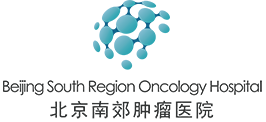C-CAR031 is an autologous, armored GPC3-targeting chimeric antigen receptor T-Cell (CAR-T) therapy, being studied for the treatment of HCC.
The research progress of C-CAR031 in hepatocellular carcinoma (HCC) was presented orally at the American Society of Clinical Oncology (ASCO) annual meeting held in Chicago in 2024.
Methods: The first-in-human, open-label dose-escalation trial employs an accelerated titration plus i3+3 design. GPC3+ advanced HCC pts who failed ≥ 1 line systemic treatments received a single i.v. infusion of C-CAR031 post standard lymphodepletion. Primary endpoints are safety and tolerability, others include pharmacokinetics and preliminary efficacy. Adverse events (AEs) were graded by CTCAE 5.0, and cytokine release syndrome (CRS) / immune effector cell-associated neurotoxicity syndrome (ICANS) were assessed per ASTCT 2019 criteria. Objective response was assessed by investigator per RECIST 1.1.
Results: As of Jan 5th, 2024, a total of 24 pts received C-CAR031 infusion at 4 dose levels (DLs). All pts had BCLC stage C HCC, 83.3% (20/24) had extrahepatic metastasis. The median number of prior lines of therapy was 3.5 (range 1-6), 23 (95.8%) pts received ICIs (immune checkpoint inhibitors) and TKIs (tyrosine kinase inhibitors). All pts were evaluable for safety. No dose-limiting toxicity and ICANS was observed. CRS was observed in 22 (91.7%) pts with only 1 (4.2%) grade (G) 3 CRS. The most common ≥G3 AEs were lymphocytopenia (100%), neutropenia (70.8%), thrombocytopenia (37.5%) and transaminase elevation (16.7%). One pt (4.2%) had G4 myelosuppression and 1 pt (4.2%) had G3 interstitial pneumonitis at DL4 caused by G3 CRS. All AEs were reversible. 22 pts were evaluable for efficacy. Tumor reductions were observed in 90.9% pts, not only in intrahepatic lesions but also extrahepatic ones with a median reduction of 44.0% (range, 3.4%-94.4%). The disease control rate was 90.9% and the objective response rate (ORR) was 50.0% for pts of all DLs. In DL4, the ORR was 57.1%.
Conclusions: The study showed a manageable safety profile and encouraging anti-tumor activity of C-CAR031 in heavily treated advanced HCC patients.
At present, there are still many clinical trials of new anti-cancer technologies in China seeking patients. Consultation on new drugs and technologies, you can contact Beijing South Region Oncology Hospital International Department.
Phone Number:4008803716
Email:myimmnet@163.com
References
3.https://ascopubs.org/doi/10.1200/JCO.2024.42.16_suppl.4019
4.ASCO-2024-IR-Presentation.pdf (astrazeneca.com)
Post time: Dec-24-2024

